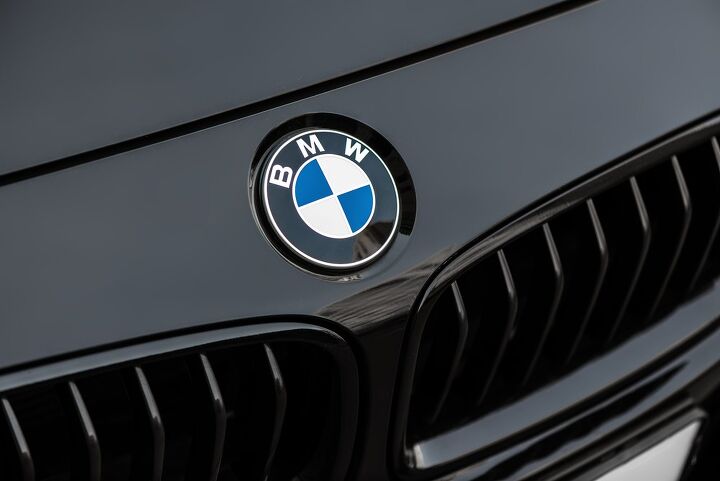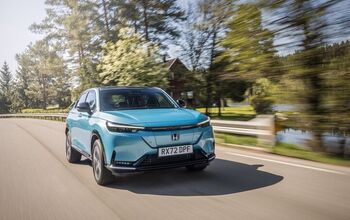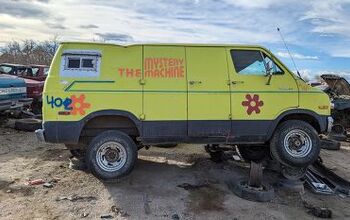BMW Boss Claims American Politics Won’t Change EV Strategy

Last week, BMW Group CEO Oliver Zipse reportedly claimed that political agendas would not influence its electrification plans. Though the entire discussion was prompted by exactly that, forcing the automaker to address supply chain logistics that likely prohibited it from qualifying for the United States' rejiggered EV subsidy scheme.
We’ve covered this in the past, noting that numerous automakers formally opposed the Biden administration’s earlier plan to make EV incentives contingent on regional content requirements and unionization. While the union angle didn’t pan out for the White House, those content requirements designed to put more manufacturing back inside the United States did. Though BMW has remained comparatively quiet on the matter until very recently.
Regardless, corporate leadership has claimed that this changes nothing – even though politics just influenced how it’s going to market over-the-air updates for its electrified vehicles. Though perhaps that is not a big enough issue to inform BMW’s overarching strategy.
"We would not change in a substantial manner our strategy because of current politics," Automotive News quoted Zipse as saying at a CES 2023 media briefing. "Our cars have a life cycle of maybe seven years, sometimes even longer. That's roughly two or three administrations."
While his phrasing is a bit unfortunate here and makes it sound as though BMW products begin to sour a lot quicker than you’d hope, the gist is that Zipse and the company are trying to manage the business on a longer timeline. The CEO attempted to illustrate this by noting that BMW likewise refused to bring more manufacturing to America under the Trump administration.
“We discussed with the previous administration … and they would try to force us into the implementation of a combustion engine plant in the United States, which we don't have today," Zipse said.
"For God's sake, we didn't do that," the CEO reportedly exclaimed. "We have our own mind, and sometimes you must follow your strategy."
It’s not clear what exactly Zipse is trying to convey here. While attempting to showcase BMW’s commitment toward electrification, he unintentionally highlighted how consistently the brand has failed to invest in the U.S. – its second-largest market after China.
Though it should be noted that the automaker does have the Spartanburg assembly plant (located in Greer, South Carolina) responsible for manufacturing the X3, X4, X5, X6, X7, and XM. It also happens to be the brand’s biggest factory right now. Zipse reportedly made reference to this fact, adding that the company is actually kind of a big deal for America.
"For the past eight years, we have been the largest exporter in value from the United States to the rest of the world — more than any American manufacturer does," said the CEO. "We are an American producer 100 percent."
However, if that were objectively true, BMW wouldn’t be annoyed that its products are failing to qualify for U.S. tax credits based on content requirements. Zipse even suggested that the laws were slanted to benefit domestic manufacturers with more localized supply networks. While true, he followed up by suggesting that the European system giving money to corporations was much fairer, which hardly seems like something a 100-percent American producer would say.
"We would ask for a level playing field as long as you are serving an American customer," Zipse said. "Europe does not make any differentiation where the car comes from. You get an incentive or tax break if you sell a car in Europe."
Despite ZIpse’s assertions to the contrary, everything the automotive industry does is informed by politics. This is why the industry spends a fortune on lobbying efforts and explains why Zipse is now having to wrestle with U.S. investments and the rules surrounding future EV incentives. Automakers (and plenty of other businesses) want to cash in on government subsidies designed to promote battery-powered automobiles as long as possible. BMW is worried the money train is about to leave before it has bought another ticket.
It may even be fair to say that the Bavarian automaker’s concerns are valid considering the amount of money it has devoted toward its own electrification goals. BMW is planning to spend $1.7 billion in ready production of its “Neue Klasse” EVs into production at its only U.S. factory, with room left over to build battery packs, sometime before 2030.
"If we put that big investment into the country and we would not be part of the [Inflation Reduction Act] umbrella, that would be a disappointment," Zipse said. "When a level playing field is disturbed or at risk, then it becomes for politicians a dangerous thing because there is always a backlash.”
[Image: Sklo Studio/Shutterstock]
Become a TTAC insider. Get the latest news, features, TTAC takes, and everything else that gets to the truth about cars first by subscribing to our newsletter.

A staunch consumer advocate tracking industry trends and regulation. Before joining TTAC, Matt spent a decade working for marketing and research firms based in NYC. Clients included several of the world’s largest automakers, global tire brands, and aftermarket part suppliers. Dissatisfied with the corporate world and resentful of having to wear suits everyday, he pivoted to writing about cars. Since then, that man has become an ardent supporter of the right-to-repair movement, been interviewed on the auto industry by national radio broadcasts, driven more rental cars than anyone ever should, participated in amateur rallying events, and received the requisite minimum training as sanctioned by the SCCA. Handy with a wrench, Matt grew up surrounded by Detroit auto workers and managed to get a pizza delivery job before he was legally eligible. He later found himself driving box trucks through Manhattan, guaranteeing future sympathy for actual truckers. He continues to conduct research pertaining to the automotive sector as an independent contractor and has since moved back to his native Michigan, closer to where the cars are born. A contrarian, Matt claims to prefer understeer — stating that front and all-wheel drive vehicles cater best to his driving style.
More by Matt Posky
Latest Car Reviews
Read moreLatest Product Reviews
Read moreRecent Comments
- GS340Pete All new cars, repairs only, in chronological order:1996 Eagle Vision Tsi: $400 in repairs in 90k miles, and an under warranty fuel rail replacement. Did I get lucky? 2001.5 VW 'New Jetta' 1.8T auto. Transmission self-destructed within six months. "You're lucky this was under warranty, this would have been like 11 grand." Traded it immediately. Electrical gremlins started showing up too. 2002 Nissan Pathfinder. One $400 repair out of warranty, 02 sensor, in 100k miles.2012 Nissan Maxima, $0 in 24k.2013 Nissan Altima, $0 in 50k.2014 Dodge Charger AWD. $400 sensor out of warranty in 130k. Again, did I get lucky?
- 1995 SC The Ridgeline is too new so nothing yet.The FIAT needed a tire (nail in the sidewall) and a lower steering column cover and a set of wipers. Around 200 bucksThe 30 year old Thunderbird has been needy this year. Just did fuel injectors to add to belts, hoses, motor mounts, exhaust manifold gasket, shocks and a bunch of caps replaced on various modules.Rear main has developed a small leak so I will probably have the transmission gone through when I drop it. I want to do a few things to it. I have some upgraded front calipers too but they are junk yard parts I rebuilt. Like I said, it has been needy this year but old cars do that sometimes
- Tane94 Mini annual oil change at dealership, synthetic oil and new filter, $129 but sometimes $99 when a coupon is offered.
- Mike Beranek All that chrome on the dashboard must reflect the sun something fierce. There is so much, and with so many curves, that you would always have glare from somewhere. Quite a contrast to those all-black darkroom interiors from Yurp.
- Mike Beranek 2004 Buick LeSabrepurchased in 2017, 104k, $3,100currently 287knever been jumped never been on a tow truckstruts & shocks, wheel bearings, EGR valves. A couple of O2 sensors, an oil pressure sending unit, and of course the dreaded "coolant elbows". All done in my garage with parts so plentiful there are a dozen choices of everything on Rock Auto.I've taken it to the west coast twice and the east coast once. All-in I'm under 5 grand for over 180,000 reliable miles. Best used-car purchase ever.


































Comments
Join the conversation
American politics are largely in favor of the fantasy, its the American customers who are the problem for Zee Germans and their BEV strategy.
MaintenanceCosts--Agree we no longer determine the planning decisions for most auto companies even some of our domestics like Buick and Lincoln which sell more vehicles in China than in the USA and offer actual automobiles that are not offered in the USA. Large pickups and SUVs are for the most part specific to the North American market.